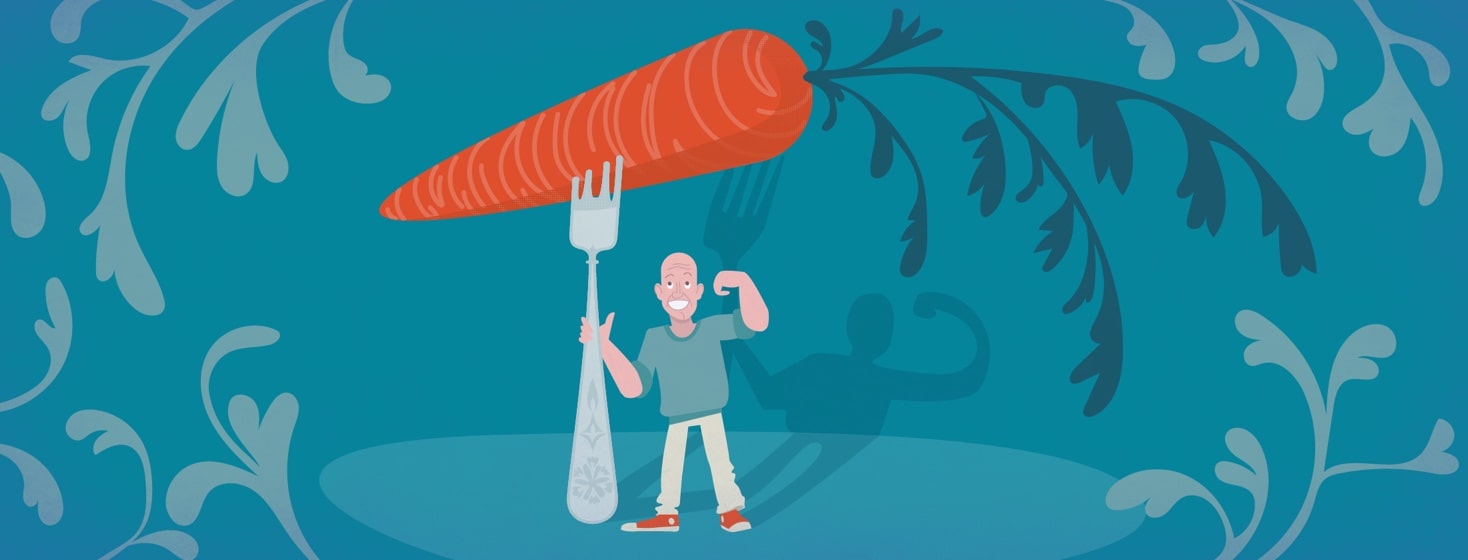What Should I Eat? Should I Go Low Carb? But I Like My Bread!
As a physical therapist, I often counsel my patients on many aspects of healthy living. I strongly believe that the food you eat can make a really significant impact on recovery and well-being.
Foods we eat affect what other foods we eat
One key point as we begin to study how nutrition plays a role in care is that the foods you eat will impact the other foods you eat. So, a diet that is high in one thing (for example, fat) will likely be low in other things (for example, protein) simply because of calorie consumption. If your hunger is satisfied by eating a lot of fat, you will eat less protein. But your body needs protein, too!
Understanding this fact helps us to know that it is important to read health claims about food with a “grain of salt.” Any source that says something like “science discovered that a high fat (or protein, or whatever) diet cures men of baldness” must be reviewed closely before anyone goes and trades in their apples for steaks at every meal.
What about carbohydrates?
Let’s start by looking at carbohydrates. What is a carb? Well, we know that a lot of people are slashing carbs from their diets in an effort to “get healthy.” But whoa!! Carbohydrates are an important source of energy for us.
Carbohydrates are found in foods such as starchy vegetables, grains, rice, breads, and cereals. The body breaks down (or converts) most carbohydrates into the sugar glucose, which is absorbed into the bloodstream. This sugar gives you energy.
Why is this food considered bad? Well, not all of it is. Not all carbs are the same. There are unhealthier, or simple, carbs, such as white bread, pastries, sodas, and other highly processed or refined foods. These items contain easily digested carbohydrates that may contribute to weight gain, interfere with weight loss, and promote diabetes and heart disease.1
Healthier, or complex, carb choices include unprocessed or minimally processed whole grains, vegetables, fruits, and beans. All of these promote good health by delivering vitamins, minerals, fiber, and important phytonutrients.
Benefits of a healthy-carb diet
Now on to what some research tells us about carbs and prostate cancer. A 2019 study on mice concluded that a diet with a low glycemic index (in other words, a diet that included complex carbs rather than simple carbs) delayed the growth of prostate cancer. So, this is telling us that a diet with high-quality carbs may be beneficial.2
Carbs and cancer
At this point, I hope you see the trend. There are more studies I could list, but the bottom line when it comes to carbs and prostate cancer is:
- Eat healthier versions of carbohydrates – whole grain, fruits, and vegetables.
- Avoid processed white breads, white pastas, simple sugars (candy, cookies), and highly processed foods (or foods with long lists on their labels).
In this fight against prostate cancer, we want to employ every method possible to live our best lives, and nutrition is one way to reach this goal! This will be my first in a series of articles to help you have the information you need to make good food choices.

Join the conversation